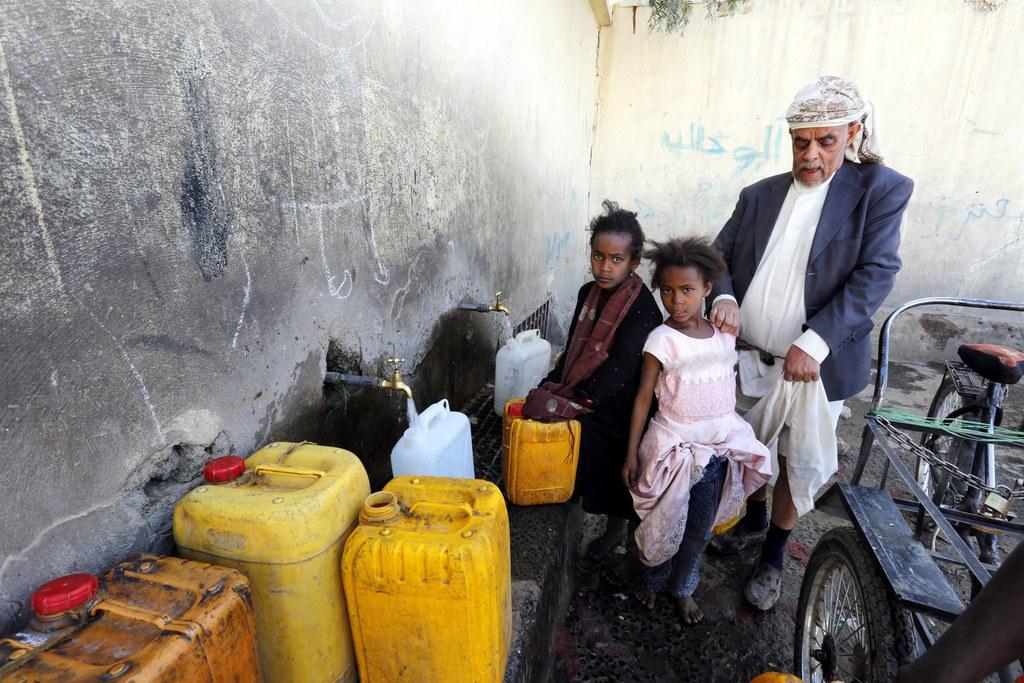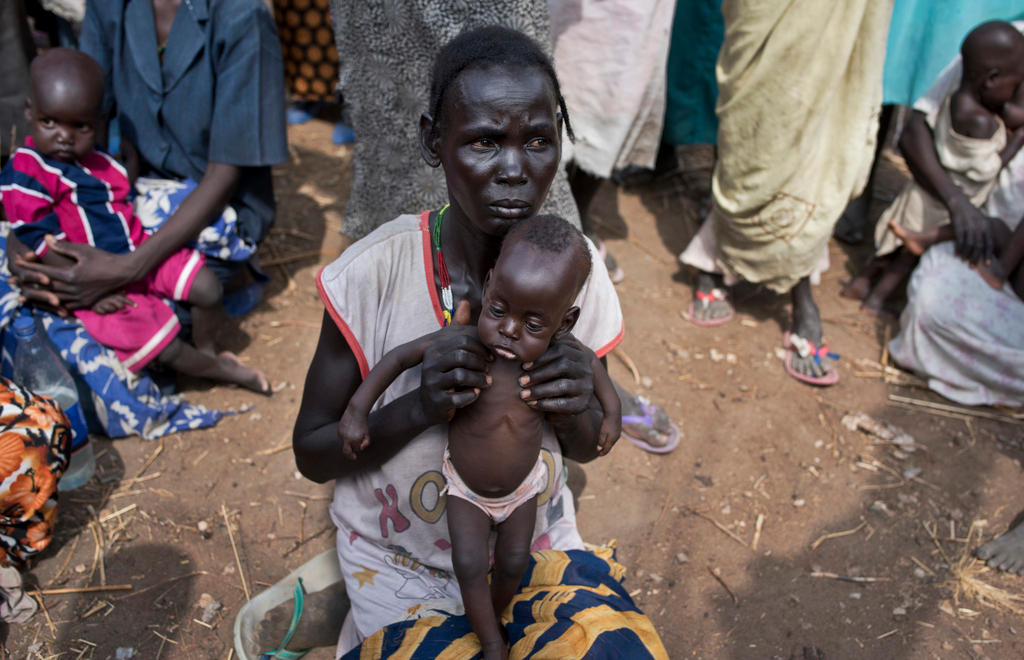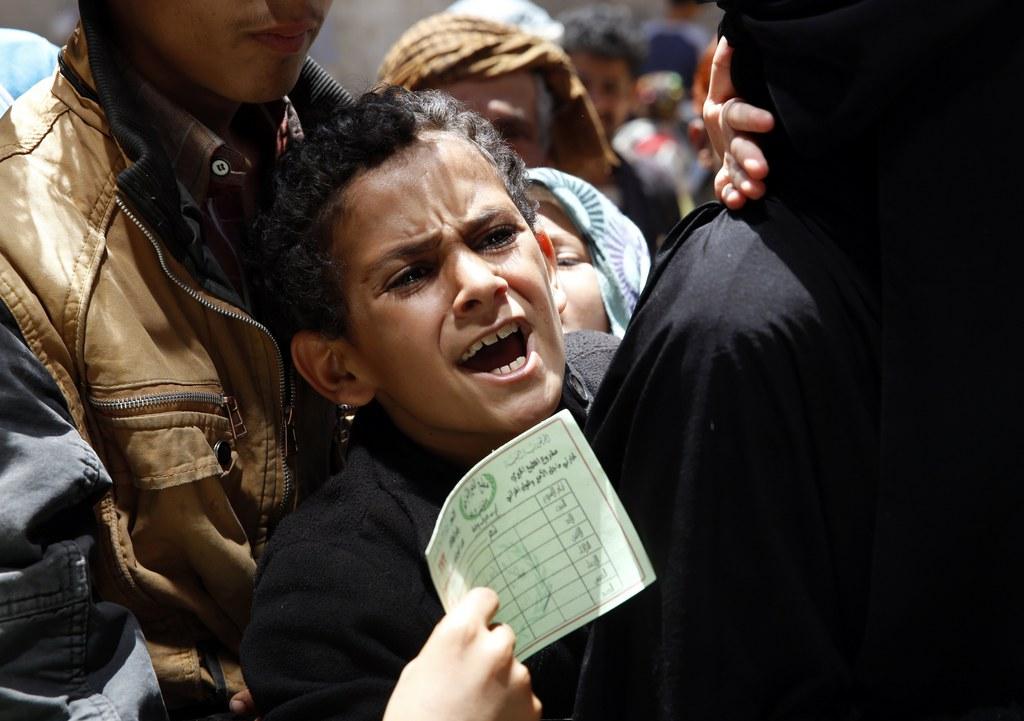Switzerland pledges more emergency aid to Yemen

Switzerland has promised an extra CHF4 million ($4.2 million) towards humanitarian aid for Yemen at a United Nations donor conference in Geneva. So far, states have pledged over $2 billion towards the UN Yemen appeal of $3 billion for this year.
Switzerland’s overall contribution towards Yemen for 2017-2020, announced at last year’s donor conference, will rise to CHF45 million, of which CHF13 million will go to the UN’s 2018 Yemen Humanitarian Response Plan.
“It’s time to renew our solidarity with the people of Yemen and to put an end to this human disaster,” Swiss Vice President Ueli Maurer told diplomats and aid officials in Geneva on Tuesday. Switzerland co-organised the day-long Yemen donor conferenceExternal link with Sweden and the UN.
The UN says it needs $2.96 billion for the “world’s worst humanitarian crisis”External link to help alleviate the suffering of the Yemeni people, of whom 22 million – three-quarters of the population – need humanitarian aid and protection.
By Tuesday afternoon, over two-thirds of the UN response plan budget had been covered by state pledges, including a recent $930 million promise by Saudi Arabia and the United Arab Emirates. The European Union said it would give an extra €100 million and the United States promised $87 million. Around 40 countries plan to contribute towards the UN appeal – a doubling of international financial commitments to Yemen from 2017 to 2018
+ Read more about Swiss humanitarian aid and hunger
The war in Yemen between a Saudi-led military coalition and Houthi rebels has now entered its fourth year. The conflict has resulted in over 10,000 deaths, displaced over 2 million and driven the poorest country on the Arabian Peninsula to destitution and the verge of famine.
The Saudi-led military coalition, which also includes other Sunni Muslim states, has conducted thousands of air strikes targeting mainly Shia-led Houthi fighters. These strikes have often hit civilian areas, although the coalition denies targeting them deliberately. The Houthis have in turn launched rockets into Saudi territory. When the Houthis fired missiles at Riyadh last November, the coalition responded by shutting Yemen’s airports and ports. The UN said that blockade raised the danger of mass starvation, and it was partially lifted.
“Down the drain”
Alexandre Faite, the International Committee of the Red Cross (ICRC)’s outgoing head of delegation for YemenExternal link, said the direct effects of the war and 10,000 deaths were already “bad enough”.
But he said the indirect effects of the conflict on daily life were perhaps worse. These included the rising costs of fuel, cooking gas and health treatment, and the lack of coping mechanisms.
“Less than 10% of the population have access to electricity, this speaks volumes. The same goes for water,” he told swissinfo.ch.
“Because of the indirect effects the country is going down the drain further and further, and when the effects hit the foundations and structure of the country, it’s really worrying.”
Money “not enough”
Maurer, who is Swiss vice president and finance minister, said money was “crucial but it is not enough” to solve the alarming situation in Yemen.
“We must use today’s event to appeal once more for the political resolution of the conflict,” he told diplomats. “We call for a cessation of hostilities. My country remains ready to support the political process and invites all parties to come to the negotiating table without preconditions to seek a joint solution to the conflict affecting Yemen.”
Peace talks between Yemen’s warring parties took place in Switzerland in 2015, followed by a negotiating round in Kuwait in 2016.
On Tuesday, UN Secretary-General Antonio Guterres urged all parties to engage with his new special envoy, Martin Griffiths, who will head to the United Arab Emirates, Oman and the Yemeni government-held city of Aden to seek peace.
Griffiths has already held talks with both sides in the war which has drawn in regional powers, meeting Houthi authorities who hold the capital Sanaa as well as internationally-recognised Yemeni president Abd-Rabbu Mansour Hadi and Saudi officials in Riyadh.
Guterres told reporters on Tuesday that there were “positive perspectives” about a plan of action to lead to an “effective inter-Yemeni dialogue able to achieve a political solution”, which would involve every party “relevant in this conflict”.

In compliance with the JTI standards
More: SWI swissinfo.ch certified by the Journalism Trust Initiative












You can find an overview of ongoing debates with our journalists here . Please join us!
If you want to start a conversation about a topic raised in this article or want to report factual errors, email us at english@swissinfo.ch.